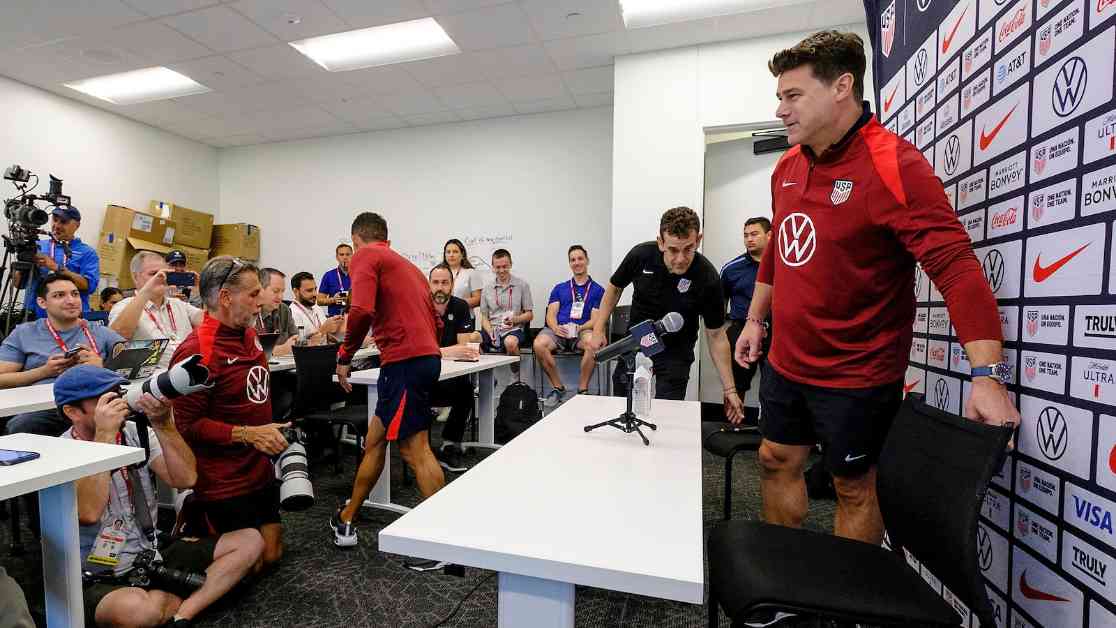A new era for United States soccer is about to begin with an Argentine coach leading the team towards the 2026 World Cup on American soil. Mauricio Pochettino, who previously managed Tottenham and Chelsea, is making his U.S. debut in friendly matches against Panama and Mexico. These games mark the start of a new phase for the U.S. team, as Pochettino takes over after Gregg Berhalter and three interim coaches led the squad through the first 26 matches of the World Cup cycle.
Pochettino emphasized the importance of patience as he, his staff, and the players get to know each other and work on developing tactics. Success will be measured by the team’s organization and how well they understand each other’s expectations. Despite the desire to win, Pochettino stressed the need to give the team time to adapt to his coaching style.
Injuries have sidelined several key players for the upcoming matches, including Tim Weah, Sergiño Dest, and Tyler Adams. However, Pochettino’s focus is on preparing the team for a successful run in the 2026 World Cup, where the U.S. aims to advance further than its previous performances.
As the first foreign-born coach of the U.S. national team since Jurgen Klinsmann, Pochettino faces the challenge of creating a cohesive unit. His roster includes standout players like Christian Pulisic, who has been in impressive form for AC Milan. Pulisic, who is recognized as one of the best attacking players in the world, acknowledged the intensity of Pochettino’s training sessions and the need for the team to solidify their playing style.
Despite the high expectations for the upcoming matches, Pulisic emphasized the importance of team cohesion and confidence moving forward. Defender Tim Ream, the oldest player on the roster, echoed the sentiment of focusing on winning while also absorbing Pochettino’s principles and ideas.
The US team’s journey under Pochettino’s guidance will be closely watched as they aim to make a mark on the international stage in the lead-up to the 2026 World Cup. The players’ dedication to adapting to the new coaching style and building team chemistry will be essential for their success in future competitions.








